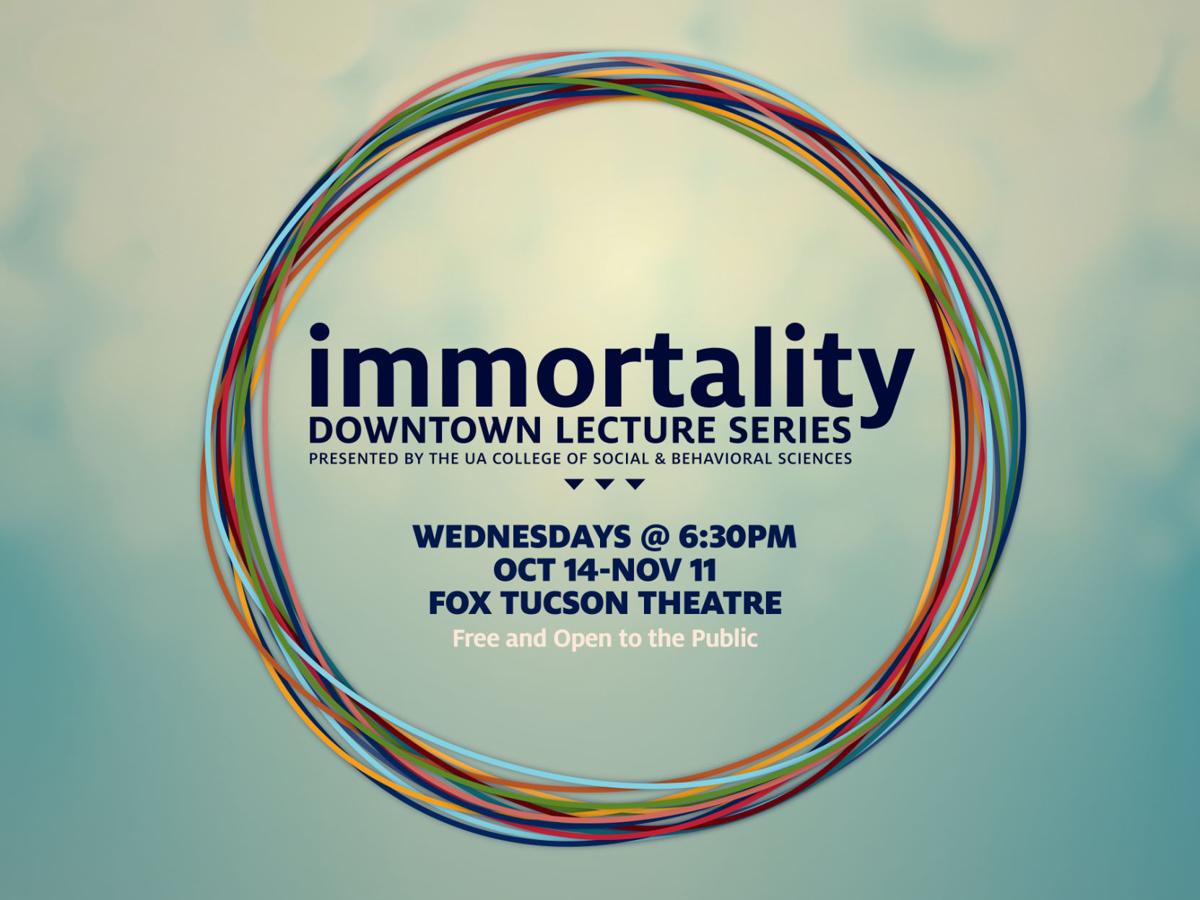What happens when life ends is a source of fear and anxiety, but the ancient philosophers Plato and Epicurus maintained that death cannot really harm us, a UA associate professor told a Tucson audience.
Rachana Kamtekar, an associate professor of philosophy at the University of Arizona, took the stage at the Fox Tucson Theatre Wednesday evening and spoke about matters of life and death. Her lecture, “Two ancient philosophers on why death is no evil,” was the fourth installment in the Downtown Lecture Series on Immortality.
Other philosophers, both ancient and contemporary, have explored attitudes towards death, but Kamtekar finds Plato and Epicurus particularly compelling.
“The interest and relevance … comes from there having been really smart people who thought really hard about death,” she said.
Tale of Two Philosophies
In spite of their agreement that death does no harm, Plato and Epicurus differed on the impact death has on the soul.
Epicurus believed the soul was not immortal and therefore ceased to exist along with the physical body. There are no further experiences, good or bad, and death is simply nothingness.
“He thinks at death the soul disperses and so there’s no more experience, indeed there’s no more ‘self’ because the ‘self’ is the union of soul and body,” Kamtekar said of Epicurus. “As he puts it, ‘death is nothing to us.’”
Plato explored two lines of thinking. In Plato’s first scenario, the soul disperses after death. The second scenario assumes an immortal soul.
Plato described two possible visions of the afterlife for an immortal soul. One vision involves a period of reward and punishment and the other adds reincarnation where a soul enters the body of a creature whose nature reflects the character of the deceased, Kamtekar said.
The implication of Plato’s views is that people must think differently about the choices they make in their daily lives, Kamtekar said.
For Kamtekar, the most important message is what Plato’s philosophy asks of us.
“He asks us to imagine what it would be like to be a soul that could freely choose its next life,” she said. “And what he shows us is that the choice that you make is an expression of your values.”
Audience Reaction
Outside the theater, audience members discussed whether death is something to fear.
“Nobody mentioned the possible lead-up to actual death that could be really scary and seriously painful and something you will regret and something that can harm you in the here and now,” Pat Weigand said. “Maybe in an hour you’re not going to remember it, but right now it hurts like hell.”
“It’s the soul that is important and once the soul has left, then the body is just a shell,” Neelam Sethi said. “Death can’t harm you, it’s the soul that makes the body alive.”
Despite thousands of years of debate about what happens after death, we still struggle with the fear of leaving this life with no certainty about what is to come. The ideas expressed by Plato and Epicurus offer some comfort, said Kamtekar.
“One of the things that’s really struck me about investigating Plato on this stuff about afterlife … is that Plato really thinks of the life of the soul as only temporally embodied in this particular body,” Kamtekar said.
“From our perspective … life is just from birth to death, whereas the perspective that Plato is having us adopt is that the soul has this life that goes on and on and on.”





